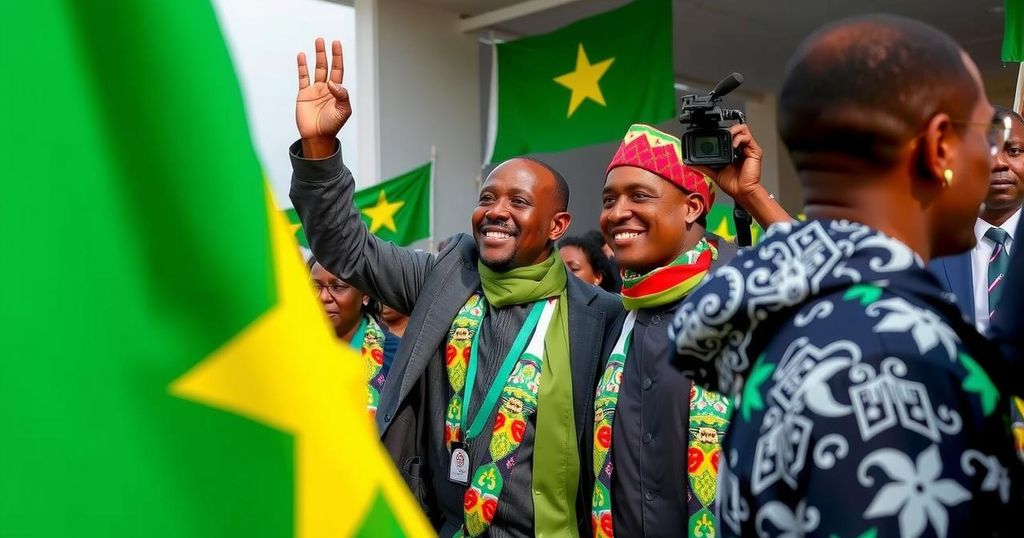Senegal’s Ruling Party Declares Victory in Legislative Elections, Setting Stage for Reforms
Senegal’s ruling party PASTEF has claimed victory in the legislative elections, solidifying President Faye’s reform agenda. Opposition parties conceded defeat amid allegations of electoral fraud from former President Sall. High unemployment and budget deficits remain critical issues as the government seeks to implement welfare measures following its election promises.
Senegal’s ruling party, PASTEF, has claimed victory in the recent legislative elections held on Sunday, following a preliminary count of nearly all ballots. This victory comes shortly after President Bassirou Diomaye Faye’s successful presidential campaign and positions him to pursue a comprehensive reform agenda. Government spokesman Amadou Moustapha Ndieck Sarre expressed gratitude to the Senegalese electorate for their significant support for PASTEF. Despite ongoing vote counting, the two main opposition parties acknowledged their defeat, with Barthelemy Dias, head of the opposition coalition SAMM Sa Kaddu, offering congratulations to PASTEF. Conversely, former President Macky Sall alleged that the elections were tainted by “massive fraud” orchestrated by PASTEF, although he did not disclose further details. With this newfound parliamentary strength, President Faye, who previously struggled to implement his reforms due to insufficient parliamentary support, now anticipates progress in his agenda that includes anti-corruption measures and optimization of the country’s natural resource management. Faye’s prior election success, where he secured over 54% of the votes in the first round, suggests a favorable environment for PASTEF to enhance its parliamentary representation. Political dynamics continue to be influenced by the backdrop of dissent against Faye and his mentor, Prime Minister Ousmane Sonko, both of whom have faced criminal allegations deemed to be politically motivated during the preceding administration. The opposition, including Sall and former Prime Minister Amadou Ba, has been grappling with public dissatisfaction over high unemployment rates exceeding 20%. Additionally, recent governmental audits have revealed a larger budget deficit than initially reported under the previous regime, leading to international repercussions such as the suspension of an IMF aid program. In response to critical economic straits, the current administration has enacted measures to reduce costs of staple goods to fulfill election promises, despite the financial strain this places on national budgets. Hence, the current situation reflects a complex interplay of public expectations, political opposition, and the critical need for effective governance as Faye undertakes the responsibilities conferred by his electoral wins.
Senegal’s political landscape is characterized by a recently reformed ruling party, PASTEF, which gained prominence following a presidential election victory in March 2024. This electoral success has emboldened President Bassirou Diomaye Faye to pursue an extensive reform agenda, after having faced significant legislative opposition previously. The prevailing issues in Senegal include high unemployment rates, a widening budget deficit, and contentious political dynamics marked by allegations of corruption and fraud. These factors significantly influence both the governance strategies of the current administration and the reactions of opposition parties in a delicate socioeconomic context.
In summary, the recent victory of Senegal’s ruling party, PASTEF, in the legislative elections bolsters President Faye’s mandate to implement critical reforms. Despite facing accusations of electoral fraud from the opposition and the challenges of a struggling economy, Faye’s administration aims to address pressing issues of corruption and resource management. The outcome of the elections sets the stage for a potentially transformative period in Senegal’s governance, contingent upon the party’s capability to deliver on its ambitious promises while navigating political pressures and socioeconomic hurdles.
Original Source: www.dw.com




Post Comment